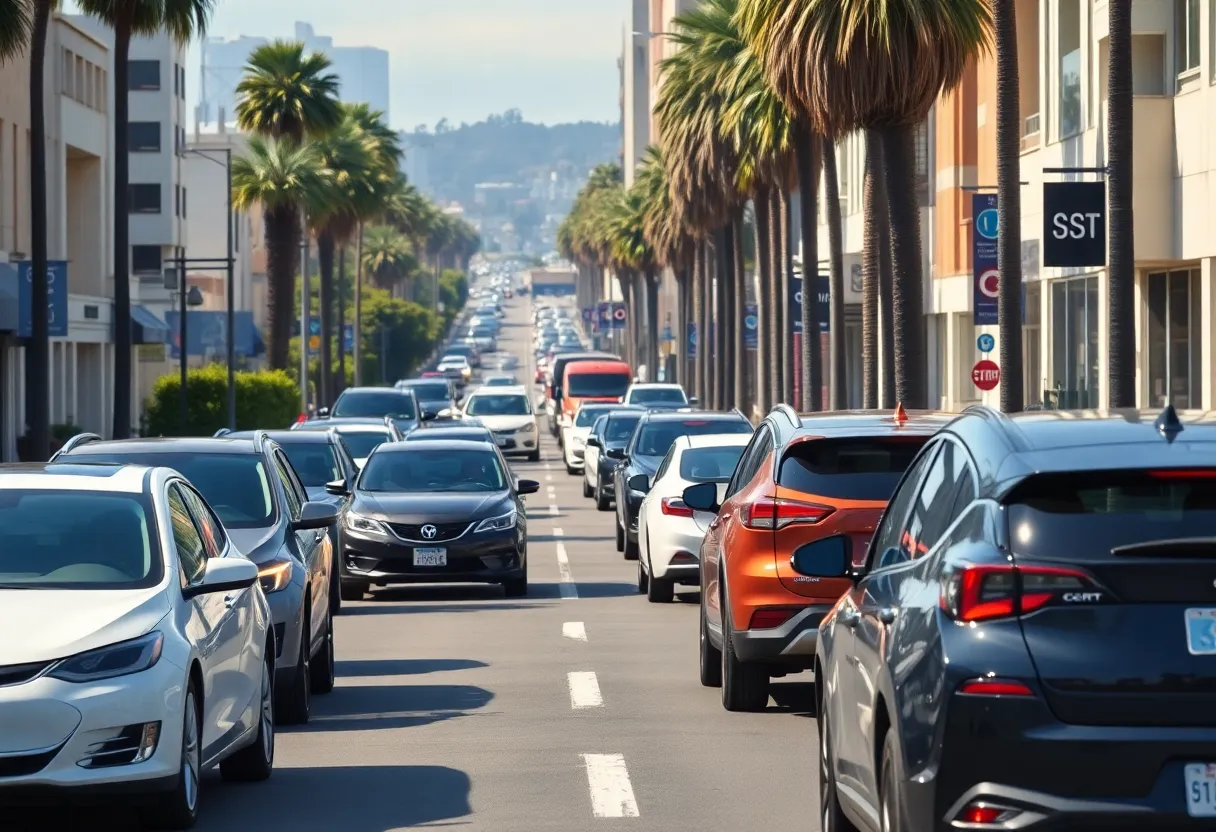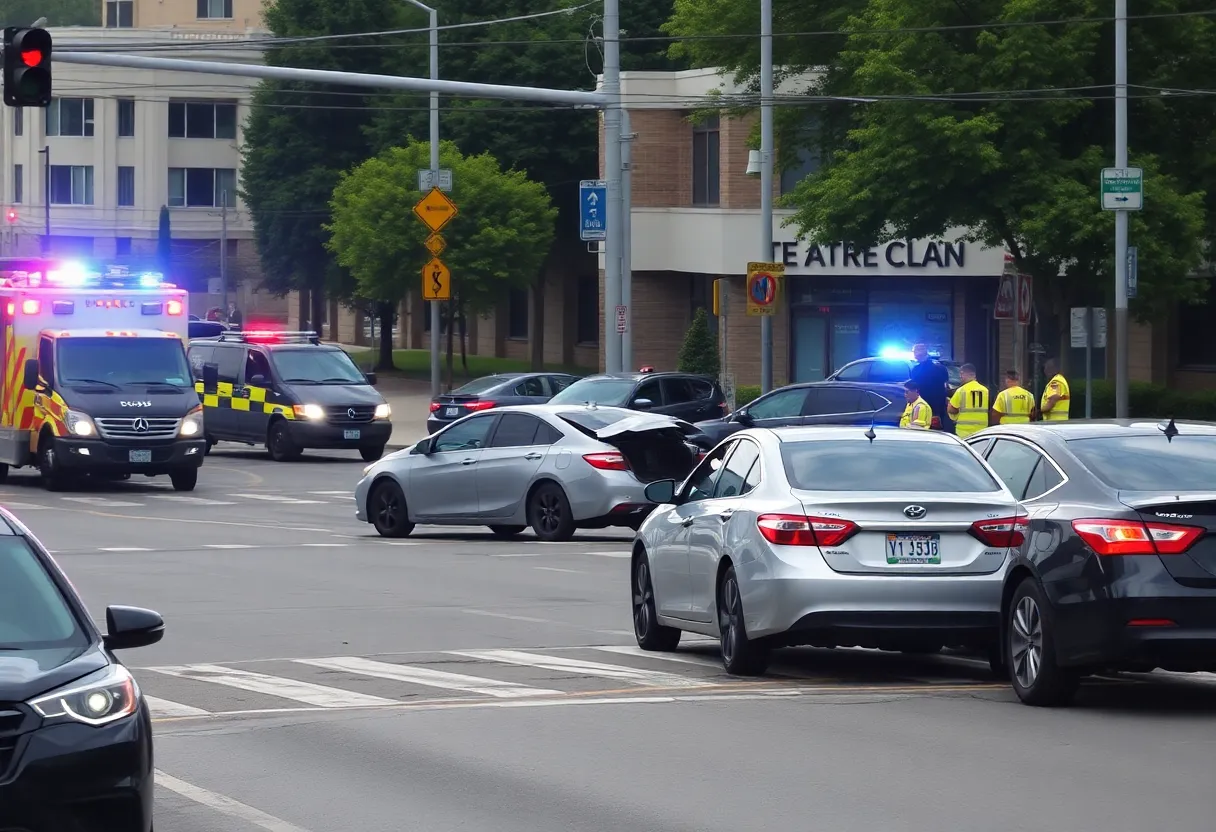News Summary
The U.S. Senate voted 51-44 to repeal California’s law banning the sale of petrol-only cars by 2035, igniting potential legal battles and reshaping the automotive industry. This decision is seen as a victory for Republicans, energy firms, and automakers, while posing a challenge for Democrats and environmental advocates. With implications for emissions regulations beyond California, the future of automotive standards in the U.S. is now uncertain, as tensions rise between federal and state authorities on environmental policies.
California Senate Votes to Revoke Gasoline Vehicle Ban
California lawmakers are facing significant changes as the U.S. Senate voted 51-44 to revoke a state law banning the sale of petrol-only cars by 2035. This decision is a response to California’s waiver that allowed it to set auto emissions standards stricter than those mandated by the federal government. The Senate’s decision is seen as a significant win for Republicans, energy firms, and automakers, while posing a setback for Democrats and various environmental groups.
Potential Legal Challenges Ahead
This vote is expected to lead to legal challenges, as California Attorney General Rob Bonta announced plans to sue over the Senate’s decision, branding it as federal overreach that endangers the lives and livelihoods of Californians. President Donald Trump is anticipated to sign the bill into law, which could intensify legal disputes surrounding environmental regulations and state rights.
Implications for the Automotive Landscape
The Senate’s decision not only affects California but has broader implications for the auto industry across the United States. Approximately a dozen states, including New York and Massachusetts, had planned to adopt California’s stringent emissions regulations, representing over one-third of the U.S. car market. This potential change aims to mitigate pollution and combat climate change. The decision will likely affect the sales and development of electric vehicles, which currently account for about 10% of new car sales in the U.S., compared to 30% in the UK, where a similar initiative is already in place.
Arguments from Both Sides
Supporters of California’s ban argue that it constitutes a vital step in reducing air pollution and fighting against climate change. Environmental advocates emphasize that repealing the regulations would harm public health and diminish various protections established under the Clean Air Act. The Natural Resources Defense Council raised concerns that reforming California’s standards would increase driving costs and harm public health.
Conversely, critics argue that California’s ambitious goals for electric vehicles—specifically, requiring 35% of new sales to be electric by 2026—are unrealistic and impose undue burdens on manufacturers. Carmakers expressed concerns that they would be required to purchase emission credits, particularly from Tesla, which could impede their investment in developing their electric vehicle lines.
Background Context
California has long been authorized to adopt stricter emissions standards due to persistent air quality challenges. This relationship with the Environmental Protection Agency has allowed the state to maintain some of the most stringent regulations in the nation. However, previous attempts by the Trump administration to revoke California’s regulatory authority resulted in legal confrontations, a battle that was previously resolved following the election of Joe Biden.
The current Senate action marks the first time Congress has utilized the Congressional Review Act controversially to repeal California’s auto emissions standards. Despite warnings from the Government Accountability Office about potential legal ramifications, the Senate proceeded with the resolution. The implications of this maneuver could have long-lasting effects on congressional procedures related to environmental legislation and regulatory authority.
Future Prospects
The legislative action could eliminate an estimated 70,000 tons of smog-forming emissions and 4,500 tons of soot by 2040. However, environmental experts express concern that this could signal a rollback on air quality protections vital to public health. California Governor Gavin Newsom has criticized the repeal as a setback for public health, reaffirming the state’s commitment to fighting for robust clean air regulations amid rising environmental challenges.
As the situation unfolds, the future of California’s environmental regulations hangs in the balance, with potential implications reaching well beyond state lines, potentially reshaping the automotive landscape in the entire nation.
Deeper Dive: News & Info About This Topic
- Los Angeles Times
- New York Times
- BBC News
- CBS News
- Car and Driver
- Wikipedia: California Emissions Standards
- Google Search: California gasoline vehicle ban
- Google Scholar: California gasoline vehicle ban
- Encyclopedia Britannica: California Emissions Standards
- Google News: California gasoline vehicle ban

Author: STAFF HERE BEVERLY HILLS WRITER
The Beverly Hills Staff Writer represents the experienced team at HEREBeverlyHills.com, your go-to source for actionable local news and information in Beverly Hills, Los Angeles County, and beyond. Specializing in "news you can use," we cover essential topics like product reviews for personal and business needs, local business directories, politics, real estate trends, neighborhood insights, and state news affecting the area—with deep expertise drawn from years of dedicated reporting and strong community input, including local press releases and business updates. We deliver top reporting on high-value events such as the Rodeo Drive Concours d'Elegance, the Beverly Hills artSHOW, Concerts on Canon, and holiday celebrations throughout the city. Our coverage extends to key organizations like the Beverly Hills Chamber of Commerce and Visit Beverly Hills, plus leading businesses in luxury fashion, hospitality, and entertainment that drive the local economy. As part of the broader HERE network, including HERELosAngeles.com, HERESantaAna.com, HEREHuntingtonBeach.com, and HERECostaMesa.com, we provide comprehensive, credible insights into Southern California's dynamic landscape.



